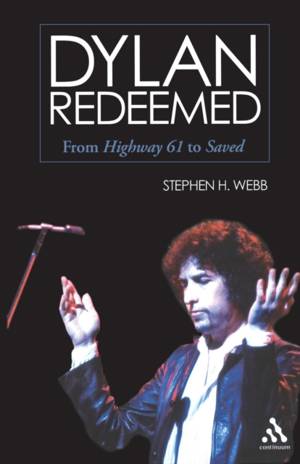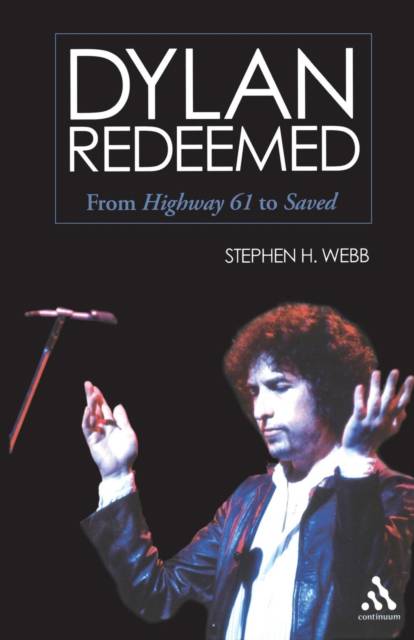
- Afhalen na 1 uur in een winkel met voorraad
- Gratis thuislevering in België vanaf € 30
- Ruim aanbod met 7 miljoen producten
- Afhalen na 1 uur in een winkel met voorraad
- Gratis thuislevering in België vanaf € 30
- Ruim aanbod met 7 miljoen producten
Zoeken
Omschrijving
Bob Dylan's earth-shattering performance at Newport in 1965 changed the face of rock and roll and the face of folk music forever. Dylan broke the musical equivalent of the sound barrier. He had to teach his audience how to hear sounds that had never before been heard.
 Dylan did the same for religion when he converted to Christianity in late 1978. Rock and reilgion have become intertwined in contemporay culture. Does rock gain its power from the decline of religious authority? Is rock a neutral medium that churches can appropriate with little or no danger to spiritual truths? Do rock and religion have the same ancient roots? Or is rock essentially at odds with Christianity? No contemporary musician presents a better test case than Bob Dylan. He played a key role in the fusion of rock and religion when he converted to Christianity.
 Dylan was ahead of the contemporary Christian music trend. Although he helped legitimize Christian rock in the late seventies, even his early music had deeply spiritual undertones. From the beginning of his career, Dylan talked about his music in terms of a spiritual calling. He imbued rock with something oracular and otherworldly--a supersonic rendition of the supernatural--which gave popular music enough weight to convey something of the mystery of religious ritual.
 Webb focuses on Dylan's religious period in this book, but convincingly shows that this religious period cannot be understood apart from a rereading of his entire career. Webb reevaluates Dylan's early career in light of Dylan's Christian period and shows that Dylan's Christian period was a natural development in his musical and spiritual journey.
 Dylan did the same for religion when he converted to Christianity in late 1978. Rock and reilgion have become intertwined in contemporay culture. Does rock gain its power from the decline of religious authority? Is rock a neutral medium that churches can appropriate with little or no danger to spiritual truths? Do rock and religion have the same ancient roots? Or is rock essentially at odds with Christianity? No contemporary musician presents a better test case than Bob Dylan. He played a key role in the fusion of rock and religion when he converted to Christianity.
 Dylan was ahead of the contemporary Christian music trend. Although he helped legitimize Christian rock in the late seventies, even his early music had deeply spiritual undertones. From the beginning of his career, Dylan talked about his music in terms of a spiritual calling. He imbued rock with something oracular and otherworldly--a supersonic rendition of the supernatural--which gave popular music enough weight to convey something of the mystery of religious ritual.
 Webb focuses on Dylan's religious period in this book, but convincingly shows that this religious period cannot be understood apart from a rereading of his entire career. Webb reevaluates Dylan's early career in light of Dylan's Christian period and shows that Dylan's Christian period was a natural development in his musical and spiritual journey.
Specificaties
Betrokkenen
- Auteur(s):
- Uitgeverij:
Inhoud
- Aantal bladzijden:
- 208
- Taal:
- Engels
Eigenschappen
- Productcode (EAN):
- 9780826419194
- Verschijningsdatum:
- 15/11/2006
- Uitvoering:
- Paperback
- Formaat:
- Trade paperback (VS)
- Afmetingen:
- 129 mm x 196 mm
- Gewicht:
- 244 g

Alleen bij Standaard Boekhandel
+ 103 punten op je klantenkaart van Standaard Boekhandel
Beoordelingen
We publiceren alleen reviews die voldoen aan de voorwaarden voor reviews. Bekijk onze voorwaarden voor reviews.







